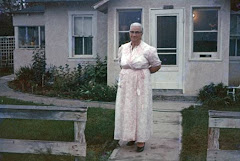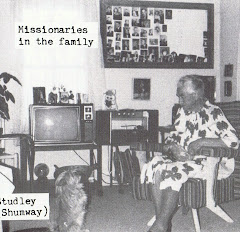Showing posts with label Louisa Marshall. Show all posts
Showing posts with label Louisa Marshall. Show all posts
Sunday, July 17, 2011
Somewhere There's A Mountain - A Pioneer Day Tribute
With grateful and loving memory of Sarah Goode Marshall (35), Lavina (12), Selena (10), Tryphena (8), Louisa (6), George (4) and Sarah Ann (2), and Sarah's sister Mariah Goode. Sarah, a widow with six small children, had a deep desire to "Come to Zion" to be with the Saints. She worked two years making kid gloves and as a ladies maid to afford the journey from England to America, and to purchase a handcart and the necessary supplies to join the handcart company. Sarah and her young family were members of the first Handcart Company, led by Captain Edmund Ellsworth. Lavina, the eldest and only 12 years of age, helped her mother pull the handcart. Selena, age 10 was in charge of making sure the children were dressed and fed for the day, and to watch over them. Selena shared her meager food rations with her younger siblings to encourage them along, and she prayed that she "would not feel the pangs of hunger" so she would be able to do so. Tryphena (8), frightened the group when she became seperated from the company after falling asleep along the trail. She found her way back, following the lights of the campfires. Selena, Tryphena, Louisa (6), and George (4) walked barefooted all or most of the 1400 mile journey. Sarah (2) was the only one allowed to ride in the handcart.
As the journey neared its end, the company camped, making repairs to the handcarts, and waiting for the 2nd handcart company to join before entering the Salt Lake Valley together midst a great celebration that was planned. It was easier for Sarah and the children to start out earlier as the heat of the day made traveling much more difficult. After receiving permission to leave the company for an earlier start, Sarah dressed the children in their best in preparation for entering the Valley. When they tried to put their shoes on, they found they would no longer fit. They pulled their handcart, and were on the crest of a hill when they saw riders in the distance shouting and waving their hats. The frightened children huddled around their mother, crying. They all were afraid these men might be Indians. As the riders got closer, they realized they were frightening the little band of travelers. They quieted their shouting and rode up to the small family. They told Sarah they were scouts sent by Brigham Young to bring back news of the whereabouts of the company. A couple of the riders picked up the smaller children and put them on their horses to ride back to Salt Lake with their report, while the other riders rode on to the main body of the Handcart Company.
They took the children to a place that may have been a Relief Society building. One of the women was holding Louisa on her lap, and was sobbing as she saw the skin hanging from her little arms as the sunlight shone through the window. Another of the children, saw some tomatoes ripening on the window sill. They were the most beautiful thing the children had ever seen. The women, noticing their interest, asked if the child would like one, and of course they nodded yes. One of the ladies encouraged the children to take a bite, "It's good!" However, to the children, the tomato was far better to look at than to eat.
The rest of the Handcart Company came in with great pomp and circumstance, a band and parade and "the first to enter" were heralded and undoubtedly greeted by Brother Brigham and other dignitaries. The little group that had arrived a day earlier, arrived in a much quieter fashion, but they did arrive.
Monday, October 11, 2010
Sockobee and the Bear River Massacre
Over Looking Bear River
This True Indian Story was a favorite story Louisa told Phoebe Wheeler.
"It was the winter of 1860 in Franklin, Idaho and the Saints were having trouble with the Indians. They were stealing cattle, horses, and giving plenty of trouble. They were told if they didn't get along they would send the army, but the Indians didn't believe them, so the soldiers were sent for and they came one evening. The Pioneers fed them and gave them a good place to sleep. The next morning they fought with the Indians, there were eight soldiers killed and many Indians killed and wounded. All the families in the settlement had to care for the wounded Indians. They put them in buildings and took food, water and medicine to them.
 |
| Sarah Goode Marshall |
There were two Indians given to great-great-grandmother, Sarah Marshall. Louisa (great-grandmother) was only 10 years old, and her brother George was 8. It was their job to take the food and water to the 2 Indians who were in the blacksmith shop. One of the Indians hands was shot pretty bad so he asked Grandmother if she and Uncle George would get some bark off quaken aspen tree, chokeberry tree, tag elder, and kontnick tree which they did. They put the bark in a big clean pot and cooked it over the fire. When it was done and cooled he put it on his hands and soon they were healed. They kept him the rest of the winter and when spring came let him go back to his tribe. He always called Louisa, Sockobee.
The years passed and grandmother married and had 6 children living in Frankfort on a big farm. Martin Calvin was doing some investigating at the lower field and wanted Louisa to walk around the field with him. There were Indians camped at the lower end of the field. Calvin said Louisa lets walk over and see if we know any of them so they did.
When they got to the camp, an old Indian came forward and said, "Sockobee, Sockobee."
Grandmother didn't know what he was trying to say or recognize him. Then he held up his two scared hands and she knew he was one of the Indians she helped to care for many years before when she was a small girl, 10 years of age."
Grandmother Delilah Asay told us this story, telling abou the Indian braves that escaped the soldiers hid under the banks of the frozen river and the snow being red with blood. Rick, has many Northern Shoshone friends, and tried to discover what Sokopee meant. Since it is phonetic, the closest translation that makes sense is "Little mother". In any case, this Indian used it as a term of endearment.
(click below to hear Amazing Grace in Cherokee)
Subscribe to:
Posts (Atom)














